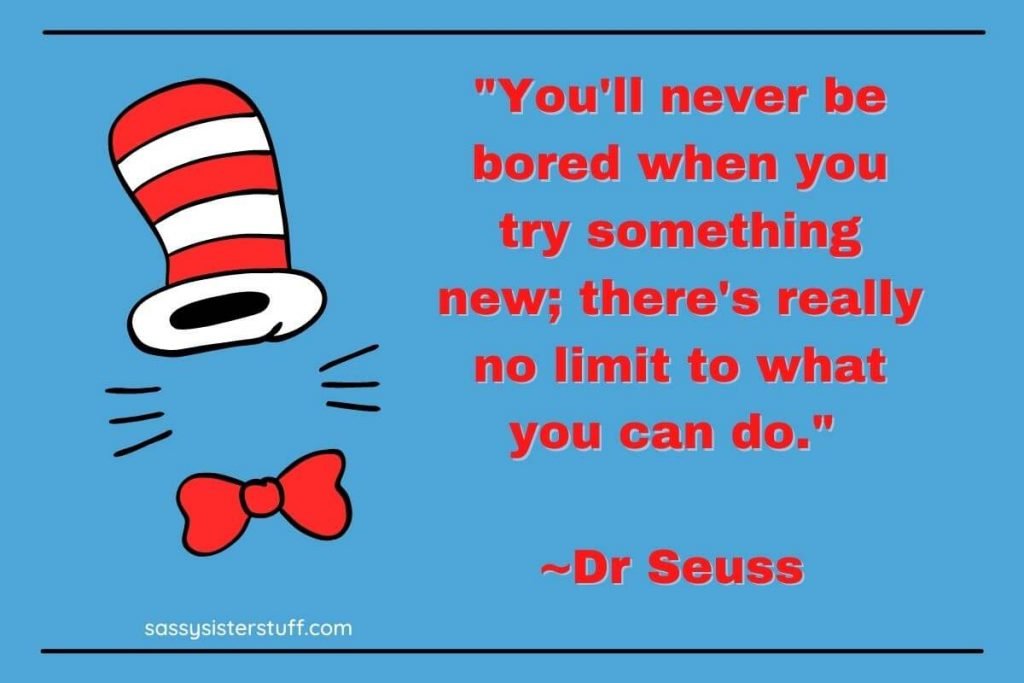7 Intellectual Wellness Tips for a Balanced Lifestyle
As you work toward focusing on the 12 aspects of a balanced life, you are most likely already addressing your physical wellness with proper nutrition and exercise. But fewer people intentionally address their intellectual wellness. Are you focused on enhancing your brainpower? Are you seeking to increase your cognitive capacity? If so, you should consider these 7 intellectual wellness tips for a balanced lifestyle.
Taking good care of your brain is equally as important as taking care of your body. Intellectual wellness helps increase your cognitive capacity, enhance your brainpower, support effective decision-making, and even lowers the risk of dementia as you get older.
There are tasks and activities you can do to help keep your brain healthy just like you work toward keeping your body healthy. In this article, we are going to look at 7 intellectual wellness tips to help you maintain a balanced lifestyle.

Intellectual Wellness Definition
There are multiple ways to define intellectual wellness but they all point back to one thing — expanding your skills and knowledge, otherwise known as increasing your brain capacity.
Simply put, intellectual wellness can be defined as recognizing one’s creative abilities and finding ways to expand knowledge and skills.
Intellectual wellness refers to your active participation in scholastic, cultural, and community activities. It is important to gain and maintain intellectual wellness because it expands your knowledge and skills in order for you to live a stimulating, successful, and balanced life.
Why is Intellectual Wellness Important?
Intellectual wellness encourages new learning. It supports your desire to explore new ideas and develop new understandings in order to become a more balanced and mindful person.
Having an optimal level of intellectual wellness inspires a deep knowledge-base and desire to keep learning and expanding your mind. This opens your world and gives you a host of learning opportunities in life.
Intellectual wellness invigorates your mind and helps to expand your world through curiosity and discovery. It makes you curious to learn more while also enhancing your memory, recall, and concentration.
And intellectual wellness also supports a successful, balance, and happy lifestyle.

Intellectual Examples and Activities
What are some examples of intellectual wellness? Intellectual wellness can mean you have the ability to develop good study skills and time management skills. It is the ability to conduct independent research about a topic that interests you.
It is the ability to challenge yourself to see various perspectives of a divisive issues. Another example is the ability to become a critical thinker.
But an awesome example of intellectual wellness is your ability to develop your own ideas, form your own opinions, and have independent views about life issues.
When you are intellectually healthy, you are able to confidently expose yourself to new ideas, people, beliefs, and cultures with an open mind. You are interested in discovering more about yourself and your potential by exploring new opportunities and perspectives, and fostering your creativity.
Through intellectual wellness, you are able to join others in community groups to solve problems; you are able to work with people who have different opinions and make compromises; and you are able to debate an issue with authority and respect.
As you can see, there are many reasons to consider these intellectual wellness tips to help you maintain a balanced, happy, and full life.

7 Intellectual Wellness Tips for a Balanced Lifestyle
You may not need to use all of these 7 intellectual wellness tips for a balanced lifestyle, but consider which ones would be beneficial to meet your personal needs and start slowly with those changes. Then work toward balancing your life for peace and genuine happiness.
1.Read a Variety of Text and Books (For Fun)
In 1994, I was in an old book store buying three books: 1) a historical fiction romance novel, 2) a popular self-help book for women, and 3) an autobiography about one of the O.J. Simpson characters.
After asking if all the books were for me (and I confirmed they were), the sales clerk said, “My goodness you certainly have eclectic tastes in books.” I chuckled because I had no idea what eclectic meant! So I didn’t know if it was a compliment, or a rude comment!
I went home and looked up the word (in my 20 year old ragged paper dictionary) and discovered it meant, “deriving ideas, style, or taste from a broad and diverse range of sources.”
I decided eclectic wasn’t a bad thing! In fact, after much reflection I decided it was GOOD to have diverse and eclectic tastes in books because it broadens my knowledge-base and opens my mind to diverse topics.
Since then, I have found myself chuckling about that experience many times because I read so many different kinds of printed material. I love magazines and blogs; I still read many genres of books; and I’ve been in graduate school for decades so I’m always reading textbooks.
Reading helps to expand your knowledge-based, so make sure you read a variety of text even if it’s only for a short time each day. And make sure you read for FUN! It shouldn’t be a chore.

2. Develop a New Hobby
My family has always laughed about my hobbies. Not because of the hobbies I choose, but because I choose a new hobby about every two years!
I get bored and gravitate toward new hobbies very easily. I’ve collected an assortment of items over the years (clowns, Beanie Babies, Precious Moments, angels, etc); I’ve learned to cross-stitch, sew, crotchet, paint, do ceramics, make jewelry, and do many other crafts.
Writing has always been an interest for me so now I’m writing for my website. I’ve created multiple websites over the years because I discovered I enjoyed the process. I’ve square danced, country-lined danced, and clogged. I’ve collected American Girl dolls with my granddaughters, and enjoyed traveling with friends.
In fact, when my parents think about ALL the hobbies and activities I’ve tried, they still shake their heads and laugh. They tell their friends they never know what I’m going to do next in life!
But, I think all those hobbies and experiences have broadened my horizons and expanded my knowledge-base just like reading does! Do you have lots of hobbies and/or interests?
3. Socialize with Different People
You should enjoy opportunities to meet and socialize with people from different walks of life whenever possible. It opens your world to new perspectives, opinions, cultures, and lifestyles. There are new people everywhere.
New people start working at your place of employment; new people move into your community; people from different backgrounds start attending your church; your children bring home new friends who may have moved from across the country.
In other words, you have opportunities all around you to socialize with new and different people who will help broaden your experiences and learn new ways to do things. Take advantage of those opportunities to expand your brain power and nurture your intellectual wellness.
But you also need to learn to listen better while you are socializing. You can’t learn from others if you are the one who is always talking, or thinking about what you are going to say next. Be respectful in your social interactions.

4. Volunteer in Your Community
Volunteering in your community is another one of the 7 intellectual wellness tips we are addressing here. Community engagement is important and valuable because it helps you learn problem solving strategies, compromise, and effective two-way communication skills.
Community engagement impacts intellectual wellness by helping people develop complex understandings of situations, problem analysis skills, critical thinking, and deep cognitive skills. It’s a great way to expand cognitive skills as you learn from others, too.
People who engage in their community learn about policy-making processes, advocacy, sustainability within the community, and the importance of civic engagement.
The opportunities for intellectual wellness and increased brain capacity is enormous in community engagement. It can also be fun and rewarding as you work with others toward a common goal of improving your community!
Pin to Pinterest for Later
5. Travel More
Everyone knows that a change in scenery can be just what the doctor ordered. It may sound silly, but the changes in light and air pressure involved in travel have been scientifically proven to improve mood and emotional well-being. Travel also expands your knowledge-base and brain power.
The very fact that you’re aware of the newness around you helps combat feelings of depression and boredom.
In addition to changing your environment, traveling also stimulates different parts of the brain.
Travel is the ultimate way to experience new cultures, people, food, and activities. It has been found that travel is an excellent way to rejuvenate the brain. It enriches your life and contributes to your personal growth.
Traveling also increases your sense of happiness, productivity, creativity, and positivity. In fact, there are more than 30 reasons why traveling is important!
So get busy planning your next big travel adventure and be sure to tell all your friends and family that you are traveling to help keep your brain healthy!

6. Learn to Play an Instrument
As a child, I had taken piano lessons for 9 years but had not played in about 30 years. So I decided it would be amazing to start playing the piano again! I started by researching and watching YouTube videos. Before long, I was playing the piano again!
Playing an instrument helps develop brain power. Learning to play an instrument will not only keep the mind sharp, but it also increases memory function and improves decision-making skills. For me, I found it helps my processing deficits.
Music is an important part of our lives. It can help us relax, improve our moods, and even provide emotional support for those who are ill. So it’s no surprise that music is also beneficial for our brains and intellectual wellness.
Learning to play an instrument can actually stimulate many areas of the brain that may not be used often, which in turn encourages creativity. Plus, research shows playing an instrument is one of the best things you can do for your intellectual wellness! So why not learn to play an instrument?
7. Join a New Exercise Class
We all know that exercise is good for your body. But did you know it’s good for your brain too? Yep!
Exercise is beneficial for your brain in many ways. First, it helps to reduce the risk of dementia and other neurological disorders such as Parkinson’s Disease and Alzheimer’s.
Second, people who engage in regular exercise have a higher cognitive reserve which can delay the onset of these disorders or protect against them altogether.
Third, exercise also enhances neuroplasticity meaning that it improves brain function by stimulating nerve cells and encouraging their growth and connections with one another.
The need for physical activity is often overlooked by the general public, but moderate exercise provides a great way to relieve stress and ward off disease. Studies have shown that people who exercise regularly have improved memory performance, self-control, endurance, and moods.
Studies also show that exercise leads to increased brain volume in areas associated with attention span and learning new tasks. So have you signed up for a new exercise class yet?
Some of these tips may sound silly for brain fitness. But I think back to when I taught Special Education and they all make perfect sense! We did brain exercises every day!
The 7 activities listed above are like brain exercises. They expand your brain and help you stay healthy — mind, body, and soul — in so many ways! So I hope you use these 7 intellectual wellness tips to help balance your life and stay healthy!

Intellectual Wellness Quotes
“People with many interests live, not only longest, but happiest.”
~ George Matthew Allen
“Wellness is a connection of paths: knowledge and action.”
~ Joshua Holtz
“Seek education from the cradle to the grave.”
~ Arabic Proverb
“Exercise is the key not only to physical health but to peace of mind.”
~ Nelson Mandela
“It is the mark of an educated mind to be able to entertain a thought without accepting it.”
~ Aristotle
“The more that you read, the more things you will know. The more that you learn, the more places you’ll go.”
~ Dr Seuss
“Creativity is intelligence having fun.”
~ Albert Einstein
“The body achieves that which the mind believes.”
~ Unknown
For additional information and inspiration about intellectual wellness tips, you may want to watch this TEDx TALK by Michael Ebinger from Washington State University.

Final Thoughts: Intellectual Wellness Tips
A lot can be said about intellectual wellness, but it’s important to remember that intellect is not the only component of wellness. It’s important to find balance among all 12 aspects of a balanced life: love, friendship, adventure, environment, health and self care, intellect, occupational skills, spiritual life, career, creativity, family, and community.
If you are unable to find balance in all of these areas, you may become stressed and feel like you’re not living your best life. You will feel at odds with the life you want to live.
But keep working on it. Read and learn. Analyze and reflect. Identify where there is a weakness in the 12 components of a balanced life. Work toward fixing the problem. And revisit the intellectual wellness tips in this article.
You can do this! Start this with your newfound intellectual wellness tips and challenge yourself to think-outside-your-box to find a solution.
And remember, it is a process. You can’t change everything at one time. Choose a few things to work on and see how things go. Evaluate your situation. And make more changes if necessary. Baby steps will get your there! I promise!
Love to All! ~Susan








